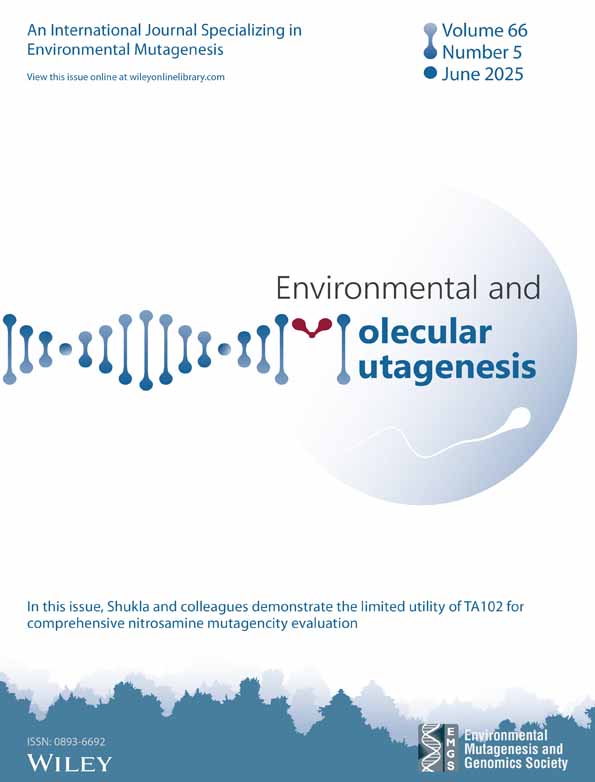Different p53 mutation patterns in colorectal tumors from smokers and nonsmokers
Abstract
Epidemiological studies consistently find associations between colorectal cancer and cigarette smoking; however, there are little molecular data supporting the association. To examine the relationship between cigarette smoking and colorectal cancer, we compared p53 mutation patterns in colorectal tumors from smokers and nonsmokers. In this study, 153 tumor tissues from colorectal cancer patients, including 63 smokers and 90 nonsmokers, were examined for p53 mutation and p53 protein expression by direct sequencing and immunohistochemistry (IHC), respectively. p53 mutations were detected in 77 of 153 (50.3%) colorectal tumors, and no difference was observed in the p53 mutation frequencies in tumors from smokers and nonsmokers (33 of 63, 50.8% for smokers vs. 44 of 90, 48.9% for nonsmokers, P = 0.743). IHC showed that p53-immunoreactive tumors were positively correlated with p53-mutated tumors (P < 0.0001). G:C→A:T transition and G:C→T:A transversion were the predominant types of mutations detected in the tumor p53 genes. G:C→A:T mutation was relatively more common in nonsmokers than in smokers (93.5% for nonsmokers vs. 77.3% for smokers), although this difference was not significant. The frequency of deletion mutation in smoker tumors, however, was significantly higher than that in nonsmoker tumors (7 of 33, 21.2% for smokers vs. 1 of 44, 2.3% for nonsmokers, P = 0.01). Although there were only a few cases of p53 deletion mutation in this study, the observation of a higher frequency of p53 deletion mutation in smoker tumors supports the association between cigarette smoking and the development of colorectal cancer. Environ. Mol. Mutagen., 2006. © 2006 Wiley-Liss, Inc.




